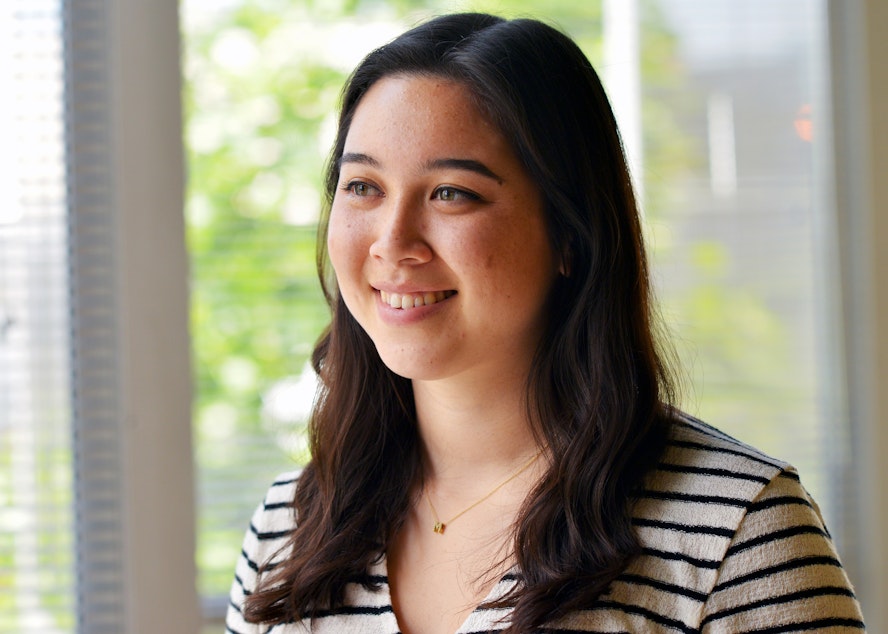Seattle employers woo tech talent with a lot of perks, but culture counts

The future looks bright for Maegan Nevalsky, who is graduating this month with a computer science degree from the University of Washington.
She and many of her peers are "getting multiple offers" and "finding which company is the best fit,” Nevalsky said.
According to the Washington Technology Industry Association, in 2018 nearly 5,000 jobs were created in Seattle that require a computer science degree from a top university. Three thousand of those jobs remain to be filled.
In preparation of the latest batch of software engineers graduating this spring, companies have gone to extraordinary lengths to attract tech talent.
On top of six figure starting salaries, there's almost always stock options, starting bonuses, and gold-plated health care plans.
Plus, there’s the perks.
A Seattle company called RealSelf offers employees yoga and meditation classes, discounted Botox treatments, a $60 "desk decoration allowance," and Kombucha on tap.
Sponsored
Nevalsky landed a job as a programmer at Redfin here in Seattle, where she’s impressed with the perks and other values that come into play.
“Our CEO is very environmentally conscious, and does not want people to be going through these cans left and right so instead he bought a La Croix machine,” Nevalsky said.

Another way companies are trying to stand out is their location and campus environment.
This fall online travel giant Expedia Group is moving from Bellevue to a shiny new waterfront campus in Seattle, with hotel-like design and first class services.
Mark Nagle, vice president of global real estate for Expedia, said the “competitive nature of attracting tech talent” played a big role in the nearly $900 million investment.
Sponsored

E-commerce company Zulily is best-known as an online retailer offering clothes, toys and other items, but this year it replaced Microsoft's Xbox to become the new sponsor for the Seattle Sounders FC.
Zulily CTO Luke Friang said in addition to building brand awareness, the “ultra competitive” tech job market played a role in the decision.
“You're looking for different, creative ways to connect with existing employees as well as potential employees,” Friang said.

Sponsored
In a job market where employees have a lot of choices, UW student Nevalsky said corporate culture and reputation are also key factors for new grads trying to decide where to work.
“After the whole sexual assault thing, a lot of women are not going to be applying to Uber, including myself,” Nevalsky said.
Closer to home, “Amazon doesn't have the greatest reputation right now, and people know that,” she said.
Nevalsky says she wants to work at a company where she'll have the opportunity to have a big impact as a programmer. And in a place where her concerns will be heard.
She said all that means a lot more to her than "working for the company with the biggest name."




